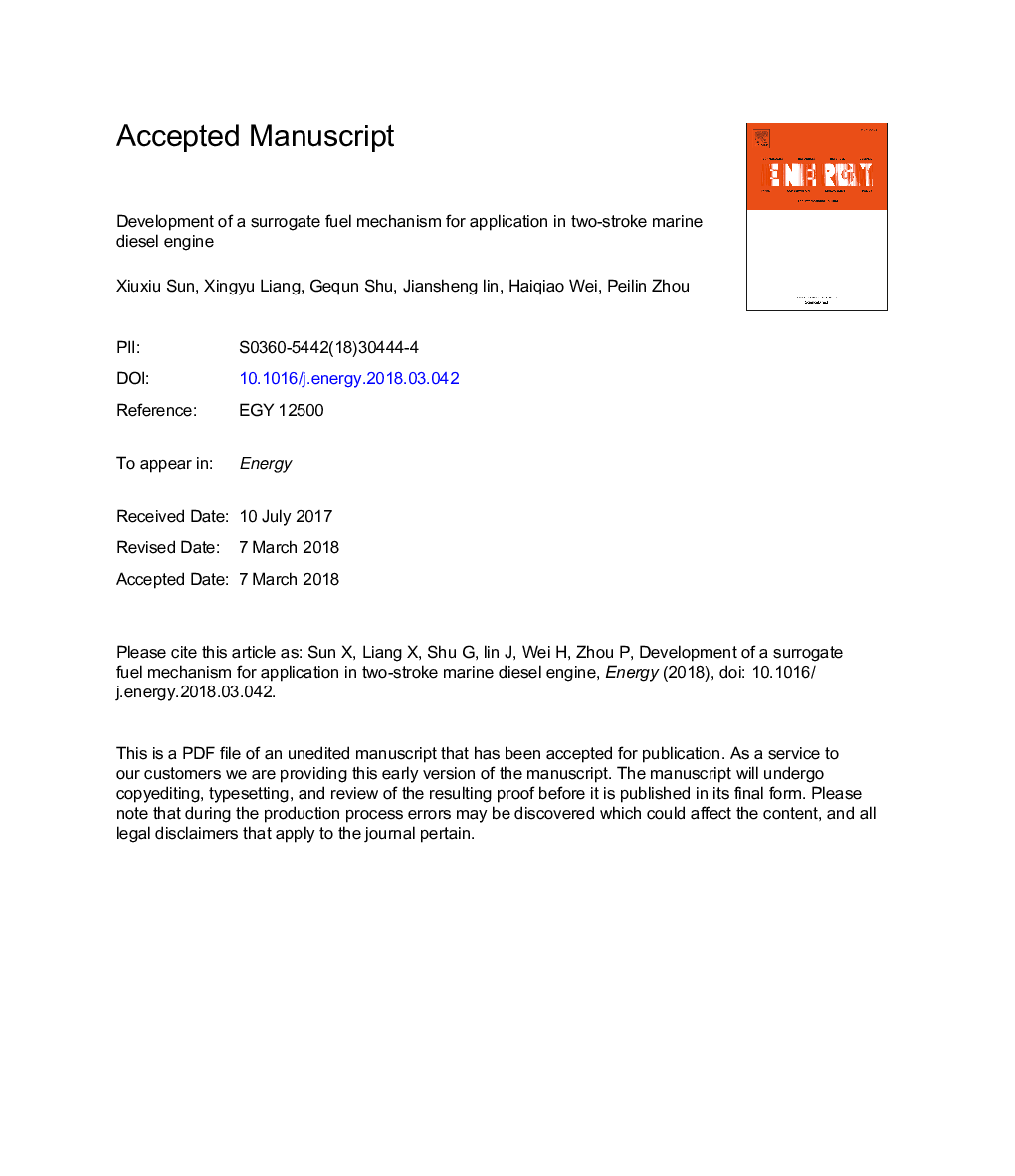| Article ID | Journal | Published Year | Pages | File Type |
|---|---|---|---|---|
| 8071547 | Energy | 2018 | 33 Pages |
Abstract
A reduced n-tetradecane-toluene mechanism was developed as a surrogate fuel for marine diesel engines. The new mechanism includes 85 species and 317 reactions. The mechanism was used in a computational fluid dynamics model to investigate the performance of marine diesel engine. The new mechanism was validated with experimental data from experiments with a shock tube, flow reactor, jet-stirred reactor and marine diesel engine. The effect of toluene content on the performance of marine diesel engines was also investigated. The results showed that the calculated ignition delay times of n-tetradecane and toluene species were consistent with the experimental data. The errors in the mole fractions of main middle species of toluene were in an acceptable range. The calculated in-cylinder pressure of the marine diesel engine was consistent with the experimental data. The calculated quantity of NOx was also close to the experimental data. The physical properties of toluene significantly affected the performance of the marine diesel engine. The n-tetradecane-toluene mechanism including 30% mass fraction toluene is most suitable as a surrogate fuel for a marine diesel engine, considering the comparisons of calculated and experimental data of power, brake specific fuel consumption, and the quantities of NOx and CO2.
Related Topics
Physical Sciences and Engineering
Energy
Energy (General)
Authors
Xiuxiu Sun, Xingyu Liang, Gequn Shu, Jiansheng lin, Haiqiao Wei, Peilin Zhou,
